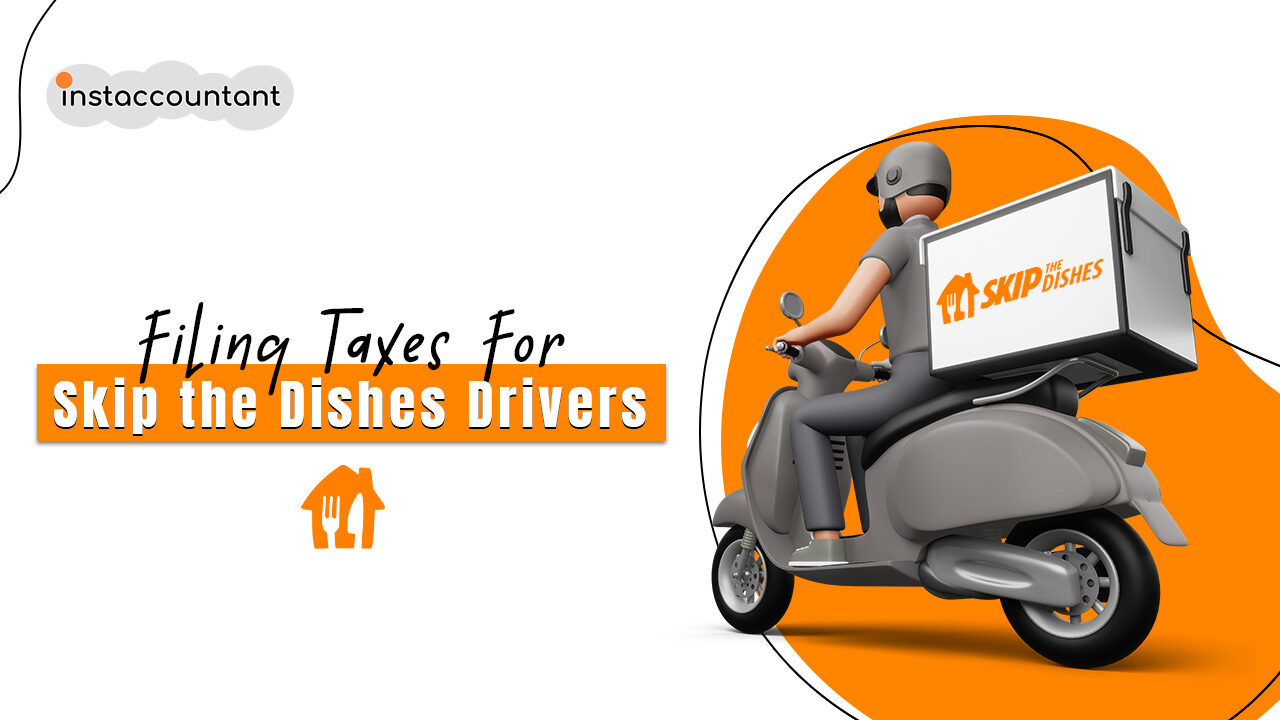If you love driving and making people happy with food, you might enjoy working as a skip the dishes driver. It’s a flexible way to earn some extra cash on your own terms. But before you hit the road, you need to be aware of the tax implications of your gig. In this guide, we’ll explain how to report your Skip The Dishes income, claim your expenses, and deal with any issues from the CRA.
Self-employment and Taxes
If you are working as a Skip The Dishes driver, it’s essential to understand that you are considered self-employed. Unlike traditional employment where taxes are deducted at the source, as a self-employed individual, you are responsible for managing and reporting your own taxes. This means that you won’t receive a T4 form and will need to account for your taxes at the year-end when filing your tax return.
It’s important to note that even if you have another job in addition to being self-employed with Skip The Dishes, you will still file a single tax return. However, this return will encompass the income from both your employment and self-employment. For self-employment income, you will need to include a T2125 form, providing details of your business activities and related expenses.
HST Considerations
Skip The Dishes drivers are not required to charge HST unless their income exceeds $30,000. If this threshold is met, registering for HST and collecting taxes on deliveries becomes necessary.
Skip The Dishes Income and Expenses
One of the most important things you need to do as a skip the dishes driver is to keep track of your income and expenses. This will help you report them accurately on your tax return and claim any deductions you’re entitled to.
Reporting Skip The Dishes Income
When it comes to reporting your income as a Skip The Dishes driver, the company provides a summary via email rather than a detailed tax statement. This email will outline the income collected from food deliveries, including tips and any additional charges or fees. It’s important to keep a record of any cash tips received, as Skip the Dishes will only record the stated tips. All tips, including cash tips, are considered taxable income and should be reported on your tax return.
Deductible Expenses for Skip The Dishes
As a self-employed individual, you may be eligible to deduct certain expenses related to your Skip The Dishes driving activities. To effectively manage your taxes, understanding and reporting these expenses is crucial. Some examples of deductible Skip The Dishes expenses include:
Car-Related Expenses
As a driver, you can deduct vehicle expenses such as gas, car insurance premiums, maintenance, and repairs. Remember to keep a vehicle log book to track your business use percentage and validate your expenses in case of an audit or assessment by Canada Revenue Agency (CRA). Some vehicle expenses, such as parking and repair costs directly related to business use, are fully deductible in the tax year they were incurred.
Cell Phone and Supplies
Expenses related to your cell phone, including the device, plans, and any accessories, can be claimed. Additionally, purchases such as delivery bags and other relevant supplies are considered deductible business expenses.
Capital Expenses
If you have purchased a vehicle for your delivery business, it is considered a capital expense. You cannot write off the entire cost of the vehicle in the year you start using it for business. Instead, you can claim 15% of its value as a business expense in the first year and 30% of its value in subsequent years.
While there are many expenses you can claim, there are also some expenses that are not deductible. For example, personal or unreasonable expenses, such as clothing, dry cleaning fees, designer sunglasses, and haircuts cannot be claimed as business expenses. It’s important to focus on expenses that are directly related to your business and keep clear records, including receipts and a vehicle log book.
Handling CRA Audits or Assessments
In the unlikely event that you are audited or assessed by Canada Revenue Agency (CRA), it’s important to have proper documentation and records to support your income and deductions. Keep all relevant receipts, invoices, and financial statements organized and easily accessible. If you’re unsure about any aspect of your tax return or need assistance, consider consulting with a tax professional who specializes in self-employment taxes.
Utilizing tools like Zoombooks can simplify expense management by digitally saving receipts and automating related bookkeeping tasks.
Conclusion
As a Skip The Dishes driver, you have the opportunity to earn extra income while enjoying flexible hours and independence. But you also have to be aware of the tax rules that apply to your situation. Just remember to keep track of your income and expenses, and file your taxes on time. You’ll be glad you did when you see how much you can save. Skip The Dishes is more than just a delivery service, it’s a way to achieve your dreams. Go for it!





